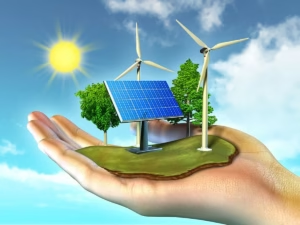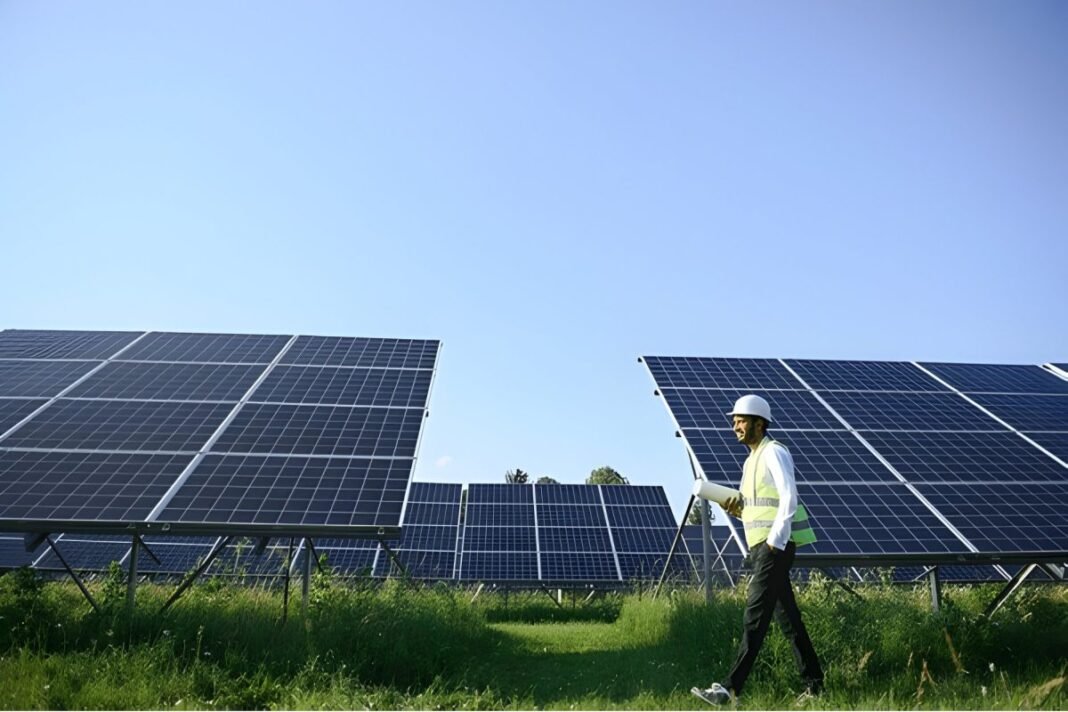The Union Budget 2025 has instilled a sense of hope within the renewable energy and electric vehicle (EV) sectors.
With a series of policy initiatives aimed at enhancing power distribution, promoting domestic production, and fostering research and development, the budget seeks to expedite India’s shift towards sustainable energy solutions.
Industry leaders, such as Mr. Raman Bhatia, have commended the government’s dedication to environmental sustainability.
Significant Support for the Renewable Energy Sector in Budget 2025
The Union Budget 2025 presents a range of reforms designed to bolster the green energy sector.
By prioritizing improvements in power distribution, EV battery production, and the National Manufacturing Mission, the budget establishments a solid groundwork for sustainable growth.
Reinforcing the Power Sector
A strong power sector is essential for any country’s energy transition. The Union Budget 2025 emphasizes the enhancement of electricity distribution and transmission systems to meet the rising demand for Sustainable power sources.
Through the implementation of strategic reforms and infrastructure enhancements, the government aims to develop a more efficient and resilient energy network.
Improving Electricity Distribution
- The budget’s focus on reforms in electricity distribution represents a strategic effort to ensure a reliable power supply nationwide.
- By permitting additional borrowing for states that adopt these reforms, the government is incentivizing upgrades to power infrastructure.
- This initiative is anticipated to improve grid stability, which is vital for the effective integration of clean energy sources.
Increasing Transmission Capacity
- Furthermore, increasing transmission capacity will be instrumental in addressing the escalating demand for clean energy.
- An efficiently organized power distribution system will not only facilitate the adoption of green technologies but also minimize losses during electricity transmission.
EV Battery Production and Domestic Manufacturing
The budget emphasizes the importance of domestic battery production, which is crucial for the electric vehicle (EV) industry.
By incorporating additional capital goods for manufacturing, the government is fostering investment and innovation in this sector.
Mitigating Import Reliance
- A significant feature of the budget is the addition of 35 new capital goods specifically for electric vehicle battery manufacturing.
- This initiative aims to enhance domestic production of lithium-ion batteries, which are essential for the EV market.
- As the transition to electric mobility accelerates, this strategy will help diminish import reliance and bolster India’s role in the global clean energy landscape.
Promoting Local Production
The government’s strategy is in line with its vision for an autonomous India. By promoting local production, the budget not only facilitates job creation and economic development but also encourages innovation within the green energy sector.
National Manufacturing Mission: Advancing Sustainability
The National Manufacturing Mission is pivotal in enhancing clean technology and renewable manufacturing sectors. Its objective is to elevate domestic production capabilities while minimizing dependence on foreign technologies.
Advancing Make in India
A key highlight of the budget is the National Manufacturing Mission, which aims to advance the “Make in India” initiative and clean technology manufacturing.
This program will concentrate on the production of solar photovoltaic cells, EV batteries, and other vital components, reinforcing the nation’s dedication to sustainable industrial progress.
Increasing Domestic Value Addition
Mr. Raman Bhatia has notably commended this initiative, highlighting its significance in enhancing domestic value addition.
By bolstering local production capabilities, India can lessen its dependence on imported technologies and cultivate a resilient ecosystem for clean energy solutions.
Promoting Research and Development
To foster innovation in sustainable energy, the budget designates significant resources for research and development (R&D).
This financial backing will empower the private sector to create pioneering technologies that improve efficiency and reduce costs.
Investing in Innovation
A key feature of the budget is the considerable funding allocated for research and development (R&D) driven by the private sector.
Innovation plays a crucial role in advancing advancements in renewable energy and electric vehicle technology.
Through R&D investments, the government is cultivating an environment conducive to transformative developments in sustainable practices.
Enhancing Public-Private Partnerships
This financial support will allow enterprises to create efficient and cost-effective technologies, further propelling the transition to clean energy.
The synergy between public and private sectors will strengthen India’s competitive edge in the global green energy market.
Effects on Renewable Energy Enterprises
The budgetary measures are anticipated to positively influence companies engaged in the renewable power and electric vehicle sectors.
Firms such as Servotech Renewable Power System Ltd are likely to gain from these initiatives, as they foster a more advantageous business environment for clean energy innovations.

Stimulating Business Expansion
By prioritizing domestic production, research, and innovation, the budget lays the groundwork for substantial growth in sustainable industries.
This approach will not only enhance India’s energy security but also aid in achieving the nation’s ambitious climate objectives.
Long-Term Economic Benefits
A robust solar energy sector is essential for sustained economic growth and job creation.
The heightened investment in clean energy technologies will position India as a frontrunner in global sustainability initiatives.
Future Prospects of Renewable Energy
The initiatives outlined in the Union Budget 2025 lay a solid foundation for enduring sustainability within the renewable energy sector. By emphasizing reforms, innovation, and domestic manufacturing, India is well-positioned to enhance its clean energy framework and diminish carbon emissions.
As global attention increasingly shifts towards sustainability, India has the potential to emerge as a frontrunner in the production and technology of sustainable energy.
Ongoing investments in solar, wind, and battery storage technologies will not only satisfy domestic energy requirements but also establish India as a significant exporter of clean energy solutions.
Furthermore, developments in hydrogen energy and smart grid systems will be vital in securing energy independence and achieving carbon neutrality in the coming decades.
Expert Editorial Comment
The Union Budget 2025 represents a pivotal moment for the solar energy sector.
Through strategic reforms in electricity distribution, an emphasis on local electric vehicle battery manufacturing, and the National Manufacturing Mission, the government has reaffirmed its dedication to clean energy and sustainability.
As noted by Mr. Raman Bhatia, these measures will stimulate economic growth while facilitating a seamless transition to a more sustainable future.
By focusing on research and development alongside local production, India is poised to become a global leader in eco-friendly energy and clean technology.

